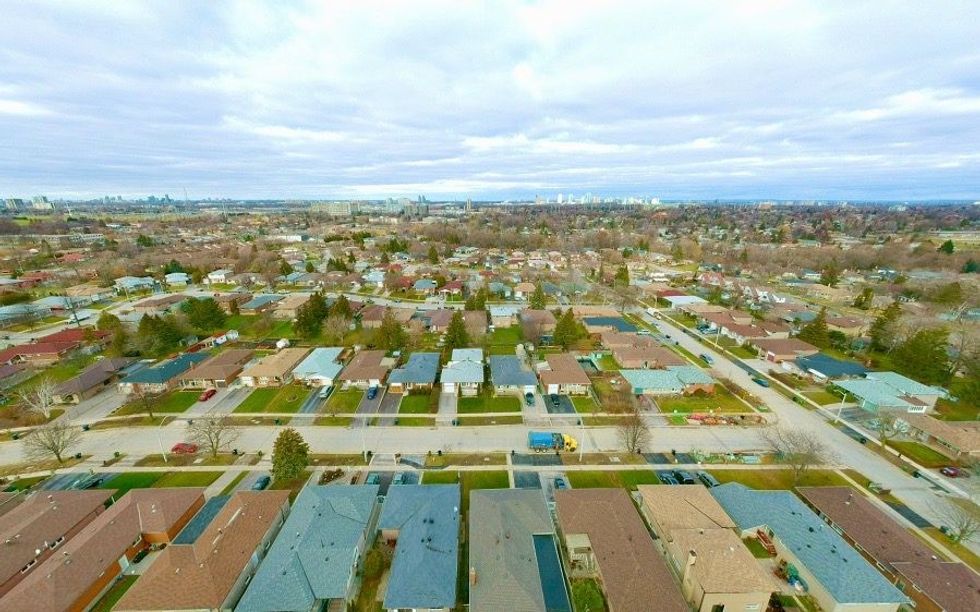After months of the great “will there or won’t there be a recession?” debate, it appears Canada is likely in store for one, according to experts.
The good news? It will apparently be “mild” (so, at least there’s that).
A new report released yesterday by Desjardins economists states that a recession seems likely for Canada and other countries in the first half of 2023, given the realities of the current climate of sky-high interest rates and a climbing cost of living.
“After more than two years of the COVID‐19 pandemic, sustained high inflation has forced many central banks to aggressively hike interest rates,” reads the report. “But bringing inflation to heel won’t be easy. Today’s inflationary pressures stem in part from factors that are beyond central banks’ control.”
The economists call the economic decline “a necessary evil,” as it will help offset some of the current imbalances that are contributing to climbing inflation. A gradual reduction in current supply chain constraints and other production-side issues will also help to calm inflation, according to the report.
While Canada’s inflation rate is actually dialling down the drama a tad, having slowed to 7.6% in July, the Bank of Canada has hinted that the country is in store for further rate hikes. With the benchmark rate expected to reach at least 3.25% this fall, the real estate market is expected to feel the pressure. This will also undoubtedly impact household spending and business investment, highlights the report.
This will all contribute to a slight contraction in real GDP not long after we ring in the new year. The result could be a weakened job market and a spike in the employment rate, according to the report.
The most significant impact on the GDP, say Desjardins economists, will come from Canada's housing market. After a red-hot, record-breaking run that began not long after the onset of the pandemic and lasted for nearly two years, the country's home prices have dropped significantly in recent months. And economists only expect it to cool further.
But recession risks aren’t limited to Canada. South of the border, odds of a looming recession are high. “Getting the tightening just right will be difficult for the Fed, and households have seen their savings buffer diminish,” reads the report.
It highlights how, across the Atlantic, Europe is vulnerable to the fallout from the ongoing war in Ukraine, particularly the sanctions and Russia’s retaliation. In response to the crisis, the European Central Bank (ECB) has also begun tightening its monetary policy. Meanwhile, China’s GDP shrank in the second quarter of 2022, and -- according to Desjardins economists -- the country’s strict zero‐COVID policy is limiting its ability to recover.
On the bright side, Desjardins economists say that public finances have improved recently. "As a result, governments are in a good position to soften the blow and lay the foundations for a recovery," they write. "This could be a good opportunity to make judicious public investments to increase productivity and resiliency in the medium term."
Furthermore, high savings rates among Canadian households may result in fewer households struggling financially -- tough-to-swallow grocery bills or not.























